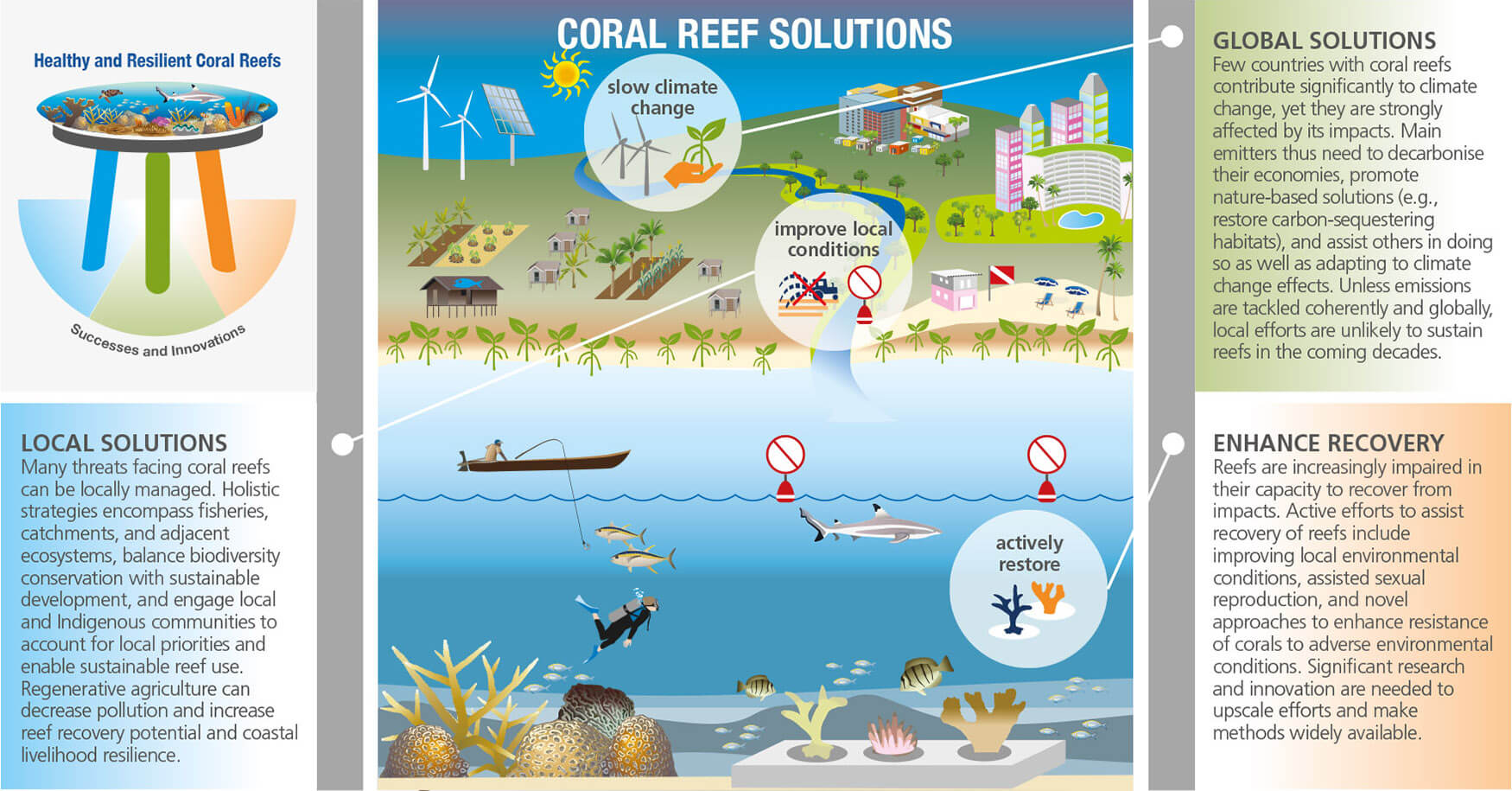Threats to corals
Corals and reefs are among the most threatened of all marine ecosystems.They are perhaps the most vulnerable ecosystems on the planet to human-caused pressures.
The main threats to corals are:


A double punch
The world’s corals also face thousands of individual local threats—overfishing, pollution, and trawling, among others. The special vulnerability of corals comes from their sensitivity to global and local human activity.
This double assault has led to the loss of between one third and one half of the world’s tropical coral reefs, and to major losses of cold-water corals.
The threats to corals often compound each other. Pollution, physical damage, and heat stress can weaken corals, making them more susceptible to disease.
Heat stress makes already unhealthy corals even more prone to bleaching. And overfished reefs are usually less resistant to overgrowth by algae or other nuisance organisms.
When added together, these injuries have reduced the resilience of corals and increased their vulnerability to bleaching, disease, and invasive species. The resulting rapid loss of biodiversity, critical habitat, and ecosystem services are now jeopardizing the livelihoods of hundreds of millions of people—and may result in the extinction of many marine species.
The window is closing—we must act now
We are now at an inflection point. The coming five to 10 years likely offer the last chance to change the trajectory of corals from a descent toward worldwide collapse to a slow but steady recovery. And because coral is so widespread, and because the biggest threat to corals is global, no single nation can reverse this course.
References
Status of Coral Reefs of the World: 2020 Report. GCRMN, ICRI, Australian Government, and Australian Institute of Marine Science. [Report]
G20 Environment Ministers Communiqué. Virtual Meeting – September 16, 2020. Communiqué. [Paper]
Discover more
Read the Status of Coral Reefs of the World: 2020 Report by the GCRMN and ICRI.
Your contribution can fast-track research and development solutions to save the corals.
